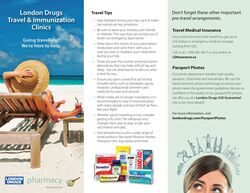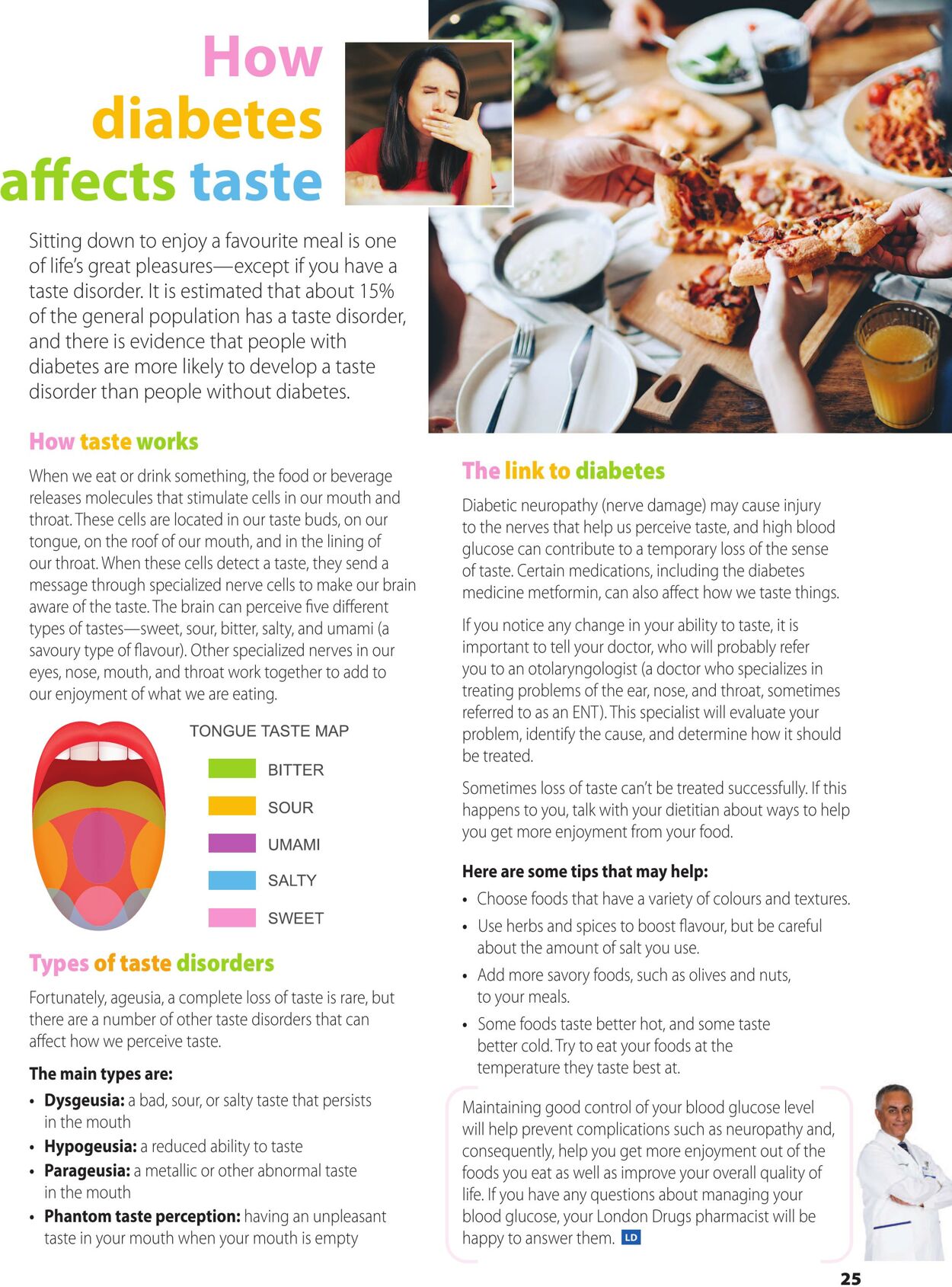













Les produits de cette circulaire
How diabetes affects taste | Sitting down to enjoy a favourite meal is one of life's great pleasures—except if you have a taste disorder. It is estimated that about 15% of the general population has a taste disorder, and there is evidence that people with diabetes are more likely to develop a taste disorder than people without diabetes. How taste works When we eat or drink something, the food or beverage releases molecules that stimulate cells in our mouth and throat. These cells are located in our taste budks, on our tongue, on the roof of our mouth, and in the lining of our throat. When these cells detect a taste, they send a message through specialized nerve cells to make our brain aware of the taste. The brain can perceive five different types of tastes—sweet, sour, bitter, salty, and umami (à savoury type of flavour). Other specialized nerves in our eyes, nose, mouth, and throat work together to add to our enjoyment of what we are eating. TONGUE TASTE MAP BITTER SOUR UMAMI SALTY SWEET Types of taste disorders Fortunately, ageusia, a complete loss of taste is rare, but there are a number of other taste disorders that can affect how we perceive taste The main types are: Dysgeusia: a bad, sour, or salty taste that persists in the mouth Hypogeusia: a reduced ability to taste Parageusia: à metallic or other abnormal taste in the mouth Phantom taste perception: having an unpleasant taste in your mouth when your mouth is empty #1 F4 » The link to diabetes Diabetic neuropathy (nerve damage) may cause injury to the nerves that help us perceive taste, and high blood glucose can contribute to a temporary loss of the sense oftaste. Certain medications, including the diabetes medicine metformin, can also affect how we taste things. If you notice any change in your ability to taste, it is important to tell your doctor, who will probably refer you to an otolaryngologist (a doctor who specializes in treating problems of the ear, nose, and throat, sometimes referred to as an ENT). This specialist will evaluate your problem, identify the cause, and determine how it should be treated. Sometimes loss of taste can't be treated successfully. If this happens to you, talk with your dietitian about ways to help you get more enjoyment from your food. Here are some tips that may help: Choose foods that have a variety of colours and textures. Use herbs and spices to boost flavour, but be careful about the amount of salt you use. Add more savory foods, such as olives and nuts, to your meals. Some foods taste better hot, and some taste better cold. Try to eat your foodbs at the temperature they taste best at. Maintaining good control of your blood glucose level Will help prevent complications such as neuropathy and, consequently, help you get more enjoyment out of the foods you eat as well as improve your overall quality of LE life. If you have any questions about managing your Rs blood glucose, your London Drugs pharmacist will be happy to answer them. 25
| Nom | Détails |
|---|